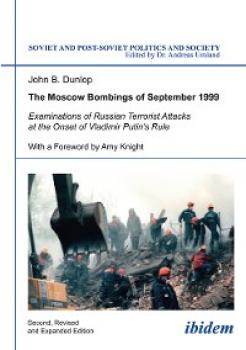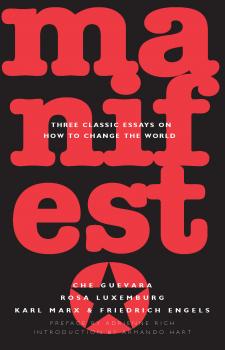ТОП просматриваемых книг сайта:
Социальная психология
Различные книги в жанре Социальная психология, доступные для чтения и скачиванияАннотация
Exploring the connections between class, ideology and politics. In this classic study, which won the Isaac Deutscher Memorial Prize, Ellen Wood provides a critical survey of influential trends in “post-Marxist” theory. Challenging their dissociation of politics from class, she elaborates her own original conception of the complex relations between class, ideology and politics. In the process, Wood explores the links between socialism and democracy and reinterprets the relationship between liberal and socialist democracy. In a new introduction, Wood discusses the relevance of The Retreat from Class in a post-Soviet world. She traces the connections between post-Marxism and current academic trends such as postmodernism and argues that a re-examination of class politics is a necessary counter to the current cynical acceptance of capitalism.
Аннотация
How Marxist thought evolved in the seventies and early eighties. What have been the major changes in the intellectual landscape of the left since the mid seventies? Have they on balance represented an emancipation or a retreat for socialist culture as a whole? In the Tracks of Historical Materialism looks at some of the paradoxes in the evolution of Marxist thought in this period. It starts by considering the remarkable and variegated growth of historical materialism in the Anglo-American world, spreading across a broad field from history to economics, politics to literature, sociology to philosophy. By contrast, the same years have seen a drastic recession of Marxist influences in the Latin cultures where it was traditionally strong—France or Italy. Its main theoretical challengers there proved to be successive forms of structuralism and post-structuralism. The common coordinates of these—tracing the outer bounds of the work of Levi-Strauss or Lacan, Foucault or Derrida—are surveyed and criticized, in the light of the inherent limitations of the language model from which they derived. In Germany, on the other hand, the theoretical scene has been largely dominated by the accumulating work of Habermas, with its roots in the Frankfurt School. Yet Habermas's philosophy also reveals unexpected affinities with the trend of prevalent Parisian concerns, in its unifying emphasis on communication—while at the same time diverging from them in the constancy of its political commitments. The historical background of international class struggles against which these variant fates of Marxism in the west were played out is then explored, with special attention to the interconnection between the destinies of Maoism and Eurocommunism. What, finally, is the nature of the relationship between Marxism as a theory and socialism as a goal? A conclusion reviews the wider issues posed for the labour movement by the rise of the peace movement and the women’s movement, and suggests a range of priorities for the further development of Marxist thought in the eighties.
Аннотация
The first edition of this classic work from 1905 shows a radically different psychoanalysis The traditional story about the historical origins of Freudian psychoanalysis implies that the Oedipus complex was part of Freudian theory from the very beginning. However, in this first edition of Three Essays on Sexuality, first published in 1905 and never before translated into English, we find no reference whatsoever to the Oedipus complex. Is there a Freudian psychoanalysis that is not Oedipal? This first version of Freud’s Three Essays articulates just such a non-Oedipal psychoanalysis. As such, it still has a definite ‘emancipatory’ potential; Freudian psychoanalysis is not Oedipal in its very nature. It is only from 1909 onwards that psychoanalysis tends to become a sophisticated defence of what Freud first called the ‘popular opinion’ about sexuality. It was precisely this ‘popular opinion’ that psychoanalysis originally was meant to deconstruct. Is there a Freudian escape – that is an escape that remains not so much within Freudian orthodoxy, but at least within its inspiration – from this impasse? If Freud has respected more systematically his own original thesis, could it be that the Oedipus complex wouldn’t be the shibboleth of psychoanalysis? Not only is this first edition less Oedipal than is generally believed, but it also contains the elements for thinking a ‘non-Oedipal’ psychoanalysis; a Freud against Oedipus. Introduction by Philippe Van Haute
Аннотация
The recent history of post-Soviet societies is often described in terms of the transition metaphor. Images of movement as well as changing places and situations were foundational for the social conceptualization of the new nations. The idea of looking for novelty and new beginnings legitimized the dissolution of the USSR as well as many state- and economy-related experiments.
This volume describes how the new societies survived this period of regime change, economic crises, internal wars, political drawbacks, and social innovations, and how they are making sense of it.
The volume’s contributors include Russian, Ukrainian, and German scholars who analyze political, social, and cultural ideologies: Natalia Koulinka, Kostiantyn Fedorenko, Pavel Skigin, Jesko Schmoller, Valentyna Kyselova, Anton Avksentiev, Chris Monday, Egor Isaev, Oleksandr Zabirko, Sergiy Kurbatov, Alla Marchenko, Jennifer J. Carroll, Daria Goriacheva, and Darya Malyutina.
This volume describes how the new societies survived this period of regime change, economic crises, internal wars, political drawbacks, and social innovations, and how they are making sense of it.
The volume’s contributors include Russian, Ukrainian, and German scholars who analyze political, social, and cultural ideologies: Natalia Koulinka, Kostiantyn Fedorenko, Pavel Skigin, Jesko Schmoller, Valentyna Kyselova, Anton Avksentiev, Chris Monday, Egor Isaev, Oleksandr Zabirko, Sergiy Kurbatov, Alla Marchenko, Jennifer J. Carroll, Daria Goriacheva, and Darya Malyutina.
Аннотация
2018 was a tumultuous year in global politics. Starting with the rise of the Lega Nord in Italy and ending with the election of Jair Bolsonaro in Brazil, it has never been such a pertinent time to study the radical right. This yearbook pulls together the best commentary and analysis from an international consortium of expert scholars examining the ebb and flow of radical right movements from around the world. Starting with a concise analysis of key definitions of the radical right and historical precursors, it takes the reader on a journey through European, then American, and finally through non-Western manifestations of the radical right. The book ends with a thematic analysis of key tactics and issues related to the radical right—including social media, hate crime, and terrorism. This unique survey provides an unparalleled snapshot of global developments in 2018—useful to scholars, students, practitioners, and interested members of the public alike.
Аннотация
"Dunlop […] draws on investigative reporting by Russian journalists, accounts of Russian officials in law enforcement agencies, eyewitness testimony, and the analyses of Western journalists and academics. The evidence he provides makes an overwhelming case that Russian authorities were complicit in these horrific attacks." The New York Review of Books
Аннотация
Special Sections:
Remembering Diversity in East-Central European Cityscapes
and
Russia’s Annexation of Crimea I
Based on up-to-date field material, this issue focuses on the palimpsest-like environments of East-Central European borderland cities. The present shapes and contents of these urban environments derive from combinations of cultural continuities and political ruptures, present-day heritage industries and collective memories about the contentious past, expressive material forms and less conspicuous meaning-making activities of human actors; they evolve from perpetual tensions between the choices of the present and the weight of the past.
The contributors address a set of key questions: What is specific about the transnationalization of memory in these urban public spaces? What are the political rationales and ramifications of the different approaches taken to the legacies of perished population groups in different cities? How do these approaches relate to European dimensions of memory and the “European vector” of identity-making of the contemporary urban populations?
Remembering Diversity in East-Central European Cityscapes
and
Russia’s Annexation of Crimea I
Based on up-to-date field material, this issue focuses on the palimpsest-like environments of East-Central European borderland cities. The present shapes and contents of these urban environments derive from combinations of cultural continuities and political ruptures, present-day heritage industries and collective memories about the contentious past, expressive material forms and less conspicuous meaning-making activities of human actors; they evolve from perpetual tensions between the choices of the present and the weight of the past.
The contributors address a set of key questions: What is specific about the transnationalization of memory in these urban public spaces? What are the political rationales and ramifications of the different approaches taken to the legacies of perished population groups in different cities? How do these approaches relate to European dimensions of memory and the “European vector” of identity-making of the contemporary urban populations?
Аннотация
The essays in this book explore the major developments, both domestic and international, that shaped the first quarter-century of Ukraine’s independence: the simultaneous construction of a nation-state and the privatization of its economy; a formal democratization of the political process alongside the capture of state institutions by big business oligarchs; their efforts to gain social acceptance at home while maneuvering between competing Russian, EU, and American projects to hegemonize the region; the impact of the financial crises of 1997 and 2008 on Ukrainian society and the national economy’s place in the world market; the growing inequality of society, the mass revolts in 2004 and 2014 against corruption and injustice; and the beginning of Russian military intervention in Ukraine.
Аннотация
“If you are curious and open to the life around you, if you are troubled as to why, how and by whom political power is held and used, if you sense there must be good intellectual reasons for your unease, if your curiosity and openness drive you toward wishing to act with others, to ‘do something,’ you already have much in common with the writers of the three essays in this book.” — Adrienne RichWith a preface by Adrienne Rich, Manifesto presents the radical vision of four famous young rebels: Marx and Engels’ Communist Manifesto, Rosa Luxemburg’s Reform or Revolution and Che Guevara’s Socialism and Humanity.










